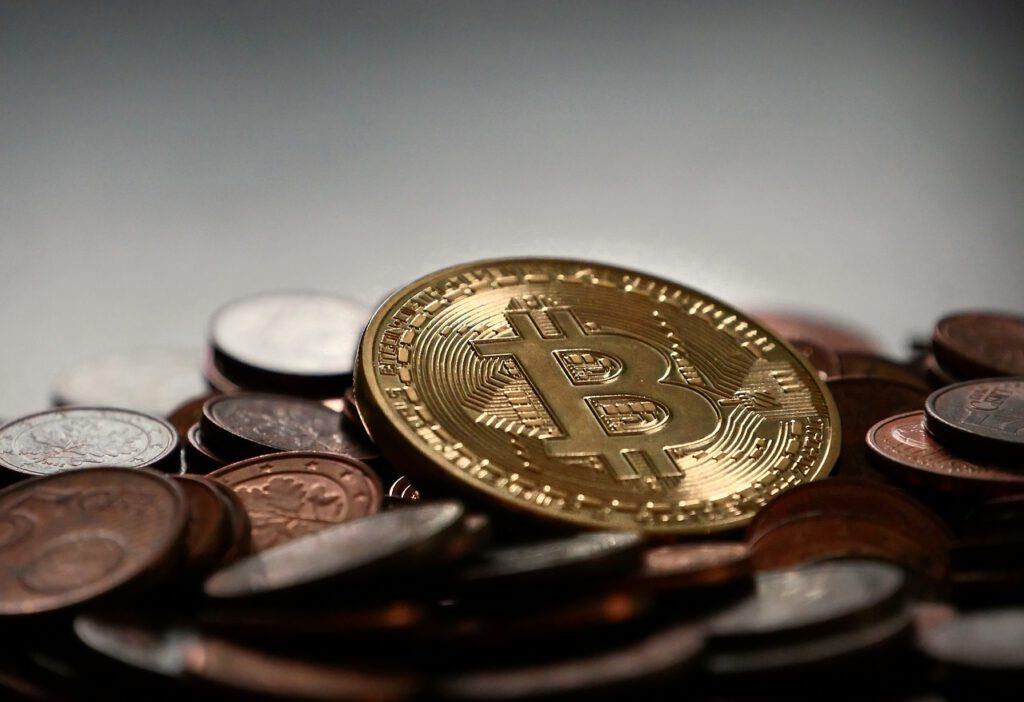(MENAFN- ValueWalk)

Free-Photos / Pixabay
The financial Times and McKinsey & Company today publishes the shortlist for the 2021 Business Book of the Year Award. Now in its seventeenth year, the Award is an essential calendar fixture for authors, publishers and the global business community. Each year it recognizes a work which provides the 'most compelling and enjoyable insight into modern business issues'.
Get The Full Henry Singleton Series in PDF
Get the entire 4-part series on Henry Singleton in PDF. Save it to your desktop, read it on your tablet, or email to your colleagues

Q2 2021 hedge fund letters, conferences and more
Why There Is No Bitcoin ETF In The U.S. Yet

Should you invest in cryptocurrencies? As with all investments, it depends on many factors. At the Morningstar Investment Conference on Thursday, Matthew Hougan of Bitwise, Tyrone Ross, Jr. of Onramp Invest and Annemarie Tierney of Liquid Advisors joined Morningstar's Ben Johnson to talk about portfolio allocations to cryptocurrencies. Q2 2021 hedge fund letters, conferences and Read More
This year's shortlisted books, selected by the nine distinguished judges (see below) are:
- The World for Sale: Money, Power and the Traders Who Barter the Earth's Resources , by Javier Blas & Jack Farchy, Random House Business, Cornerstone (UK), Oxford University Press (US)
- Empire of Pain: The Secret History of the Sackler Dynasty , by Patrick Radden Keefe, Picador/Pan Macmillan (UK), Doubleday (US)
- The Conversation: How Talking Honestly About Racism Can Transform Individuals and Organizations by Robert Livingston, Penguin Business (UK), Currency/Crown (US)
- The New Climate War: The Fight to Take Back Our Planet , by Michael E. Mann, Scribe (UK), PublicAffairs (US)
- This Is How They Tell Me the World Ends: The Cyberweapons Arms Race , by Nicole Perlroth, Bloomsbury Publishing (UK), Bloomsbury (US)
- The Aristocracy of Talent: How Meritocracy Made the Modern World , by Adrian Wooldridge, Allen Lane (UK), Skyhorse (US)
Roula Khalaf , Editor of the Financial Times, said:“We had a fabulous longlist of compelling, deeply researched books to choose from this year. Many thanks to the judges for taking the time to read them and engaging in the debate that produced this excellent shortlist. It tackles many of the pressing issues facing business today, including climate change, cybersecurity, and racial discrimination.”
Virginia Simmons , Managing Partner - UK, Ireland & Israel, McKinsey & Company, said:“While the continuing impact of the pandemic is reflected in the books that made the list, the breadth and richness of topics here underscores the forward-looking value of this annual book award. These authors provide compelling and engaging insights into modern business, climate change conversations and our sustainable and inclusive future, setting up a compelling shortlist for the jury to then select a winner, by year-end.”
The judging panel, chaired by Roula Khalaf , comprises:
- Mimi Alemayehou , Senior Vice President, Public–Private Partnerships, Humanitarian & Development Group, Mastercard
- Mitchell Baker , Chief Executive Officer, Mozilla Corporation, Chairwoman, Mozilla Foundation
- Mohamed El-Erian, President, Queens' College, Cambridge University, Advisor to Allianz and Gramercy
- Herminia Ibarra, Charles Handy Professor of Organisational Behaviour, London Business School
- James Kondo, Chairman, International House of Japan
- Randall Kroszner , Norman R. Bobins Professor of Economics & Deputy Dean for Executive Programs, Booth School of Business, University of Chicago
- Raju Narisetti , Publisher, Global Publishing, McKinsey & Company
- Shriti Vadera, Chair, Prudential plc
The Financial Times and McKinsey & Company winner of the 2021 Business Book of the Year Award will be announced on 1 December at an event co-hosted by Roula Khalaf, Editor of the Financial Times, and Magnus Tyreman , Managing Partner Europe, McKinsey & Company. The winner will receive £30,000 and the author(s) of each of the remaining shortlisted books will be awarded £10,000. The guest speaker will be Alison Rose , Chief Executive Officer, NatWest Group.
Previous Business Book of the Year winners include: Sarah Frier for No Filter: The Inside Story of How Instagram Transformed Business, Celebrity and Our Culture (2020); Caroline Criado Perez for Invisible Women: Exposing Data Bias in a World Designed for Men (2019); John Carreyrou for Bad Blood: Secrets and Lies in a Silicon Valley Startup (2018); Amy Goldstein for Janesville: An American Story (2017); Sebastian Mallaby for The Man Who Knew: The Life and Times of Alan Greenspan (2016); Martin Ford for Rise of the Robots (2015); Thomas Piketty for Capital in the Twenty-First Century (2014); Brad Stone for The Everything Store: Jeff Bezos and the Age of Amazon (2013); Steve Coll for Private Empire: ExxonMobil and American Power (2012); Abhijit V. Banerjee and Esther Duflo for Poor Economics (2011); Raghuram Rajan for Fault Lines (2010); Liaquat Ahamed for The Lords of Finance (2009); Mohamed El-Erian for When Markets Collide (2008); William D. Cohan for The Last Tycoons (2007); James Kynge for China Shakes the World (2006); and Thomas Friedman , as the inaugural award winner in 2005, for The World is Flat.
To learn more about the award, visit ft.com/bookaward and follow the conversation at #BBYA21.
Table of Contents show
-
1.
The Shortlist For The Financial Times And McKinsey 2021 Business Book Of The Year Award
-
2.
The World for Sale
-
3.
Empire Of Pain
-
4.
The Conversation
-
5.
The New Climate War
-
6.
This Is How They Tell Me the World Ends
-
7.
The Aristocracy Of Talent
The Shortlist For The Financial Times And McKinsey 2021 Business Book Of The Year Award
The World for Sale
The World for Sale: Money, Power and the Traders Who Barter the Earth's Resources , by Javier Blas & Jack Farchy, Random House Business, Cornerstone (UK), Oxford University Press (US)
In The World for Sale, two leading journalists lift the lid on one of the least scrutinised corners of the economy: the workings of the billionaire commodity traders who buy, hoard and sell the earth's resources.
It is the story of how a handful of swashbuckling businessmen became indispensable cogs in global markets; enabling an enormous expansion in international trade, and connecting resource-rich countries – no matter how corrupt or war-torn - with the world's financial centres.
And it is the story of how some traders acquired untold political power, right under the noses of Western regulators and politicians – helping Saddam Hussein to sell his oil, fuelling the Libyan rebel army during the Arab Spring, and funnelling cash to Vladimir Putin's Kremlin in spite of strict sanctions.
The result is an eye-opening tour through the wildest frontiers of the global economy, as well as a revelatory guide to how capitalism really works.
Empire Of Pain
Empire of Pain: The Secret History of the Sackler Dynasty , by Patrick Radden Keefe, Picador/Pan Macmillan (UK), Doubleday (US)
The Sackler name adorns the walls of many storied institutions – Harvard; the Metropolitan Museum of Art; Oxford; the Louvre. They are one of the richest families in the world, known for their lavish donations in the arts and the sciences. The source of the family fortune was vague, however, until it emerged that the Sacklers were responsible for making and marketing Oxycontin, a blockbuster painkiller that was a catalyst for the opioid crisis – an international epidemic of drug addiction which has killed nearly half a million people.
In this masterpiece of narrative reporting and writing, Patrick Radden Keefe exhaustively documents the jaw-dropping and ferociously compelling reality. Empire of Pain is the story of a dynasty: a parable of 21st century greed.
The Conversation
The Conversation: How Talking Honestly About Racism Can Transform Individuals and Organizations by Robert Livingston, Penguin Business (UK), Currency/Crown (US)
How can I become part of the solution? In the wake of the social unrest of 2020 and growing calls for racial justice, many business leaders and ordinary citizens are asking that very question. This book provides a compass for all those seeking to begin the work of anti-racism. In The Conversation, Robert Livingston addresses three simple but profound questions: What is racism? Why should everyone be more concerned about it? What can we do to eradicate it?
For some, the existence of systemic racism against Black people is hard to accept because it violates the notion that the world is fair and just. But the rigid racial hierarchy created by slavery did not collapse after it was abolished, nor did it end with the civil rights era. Whether it's the composition of a company's leadership team or the composition of one's neighborhood, these racial divides and disparities continue to show up in every facet of society. For Livingston, the difference between a solvable problem and a solved problem is knowledge, investment, and determination. And the goal of making organizations more diverse, equitable, and inclusive is within our capability.
Livingston's lifework is showing people how to turn difficult conversations about race into productive instances of real change. For decades he has translated science into practice for numerous organizations, including Airbnb, Deloitte, Microsoft, Under Armour, L'Oreal, and JPMorgan Chase. In The Conversation, Livingston distills this knowledge and experience into an eye-opening immersion in the science of racism and bias. Drawing on examples from pop culture and his own life experience, Livingston, with clarity and wit, explores the root causes of racism, the factors that explain why some people care about it and others do not, and the most promising paths toward profound and sustainable progress, all while inviting readers to challenge their assumptions.
Social change requires social exchange. Founded on principles of psychology, sociology, management, and behavioral economics, The Conversation is a road map for uprooting entrenched biases and sharing candid, fact-based perspectives on race that will lead to increased awareness, empathy, and action.
The New Climate War
The New Climate War: The Fight to Take Back Our Planet , by Michael E. Mann, Scribe (UK), PublicAffairs (US)
A renowned climate scientist shows how fossil fuel companies have waged a thirty-year campaign to deflect blame and responsibility and delay action on climate change, and offers a battle plan for how we can save the planet.
Recycle. Fly less. Eat less meat. These are some of the ways that we've been told can slow climate change. But the inordinate emphasis on individual behavior is the result of a marketing campaign that has succeeded in placing the responsibility for fixing climate change squarely on the shoulders of individuals.
Fossil fuel companies have followed the example of other industries deflecting blame (think "guns don't kill people, people kill people") or greenwashing (think of the beverage industry's "Crying Indian" commercials of the 1970s). Meanwhile, they've blocked efforts to regulate or price carbon emissions, run PR campaigns aimed at discrediting viable alternatives, and have abdicated their responsibility in fixing the problem they've created. The result has been disastrous for our planet.
In The New Climate War, Mann argues that all is not lost. He draws the battle lines between the people and the polluters-fossil fuel companies, right-wing plutocrats, and petrostates. And he outlines a plan for forcing our governments and corporations to wake up and make real change, including:
- A common-sense, attainable approach to carbon pricing- and a revision of the well-intentioned but flawed currently proposed version of the Green New Deal
- Allowing renewable energy to compete fairly against fossil fuels
- Debunking the false narratives and arguments that have worked their way into the climate debate and driven a wedge between even those who support climate change solutions
- Combatting climate doomism and despair-mongering
With immensely powerful vested interests aligned in defense of the fossil fuel status quo, the societal tipping point won't happen without the active participation of citizens everywhere aiding in the collective push forward. This book will reach, inform, and enable citizens everywhere to join this battle for our planet.
This Is How They Tell Me the World Ends
This Is How They Tell Me the World Ends: The Cyberweapons Arms Race , by Nicole Perlroth, Bloomsbury Publishing (UK), Bloomsbury (US)
Zero-day: a software bug that allows a hacker to break into your devices and move around undetected. One of the most coveted tools in a spy's arsenal, a zero-day has the power to silently spy on your iPhone, dismantle the safety controls at a chemical plant, alter an election, and shut down the electric grid (just ask Ukraine).
For decades, under cover of classification levels and nondisclosure agreements, the United States government became the world's dominant hoarder of zero-days. U.S. government agents paid top dollar-first thousands, and later millions of dollars-to hackers willing to sell their lock-picking code and their silence. Then the United States lost control of its hoard and the market. Now those zero-days are in the hands of hostile nations and mercenaries who do not care if your vote goes missing, your clean water is contaminated, or our nuclear plants melt down.
Filled with spies, hackers, arms dealers, and a few unsung heroes, written like a thriller and a reference, This Is How They Tell Me the World Ends is an astonishing feat of journalism. Based on years of reporting and hundreds of interviews, New York Times reporter Nicole Perlroth lifts the curtain on a market in shadow, revealing the urgent threat faced by us all if we cannot bring the global cyberarms race to heel.
The Aristocracy Of Talent
The Aristocracy of Talent: How Meritocracy Made the Modern World , by Adrian Wooldridge, Allen Lane (UK), Skyhorse (US)
Meritocracy: the idea that people should be advanced according to their talents rather than their status at birth. For much of history this was a revolutionary thought, but by the end of the twentieth century it had become the world's ruling ideology. How did this happen, and why is meritocracy now under attack from both right and left?
Adrian Wooldridge traces the history of meritocracy forged by the politicians and officials who introduced the revolutionary principle of open competition, the psychologists who devised methods for measuring natural mental abilities and the educationalists who built ladders of educational opportunity. He looks outside western cultures and shows what transformative effects it has had everywhere it has been adopted, especially once women were brought into the meritocractic system.
Wooldridge also shows how meritocracy has now become corrupted and argues that the recent stalling of social mobility is the result of failure to complete the meritocratic revolution. Rather than abandoning meritocracy, he says, we should call for its renewal.
About the Financial Times
The Financial Times is one of the world's leading business news organisations, recognised internationally for its authority, integrity and accuracy. The FT has a record paying readership of more than one million, three-quarters of which are digital subscriptions. It is part of Nikkei Inc., which provides a broad range of information, news and services for the global business community.
About McKinsey & Company
McKinsey & Company is a global management consulting firm committed to helping organisations create Change that Matters.
In more than 130 cities and 65 countries, our teams help clients across the private, public and social sectors shape bold strategies and transform the way they work, embed technology where it unlocks value, and build capabilities to sustain the change. Not just any change, but Change that Matters – for their organisations, their people, and in turn society at large.
MENAFN24092021005205011743ID1102860711